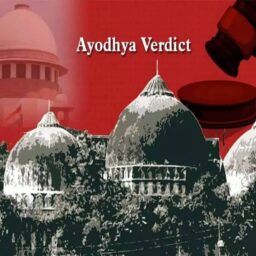
INTRODUCTION
In the past, the people of Scheduled Castes and Scheduled Tribes had faced discrimination by society in many areas. Our constitution had also provided various rights to provide them protection in the said matter. They were discriminated against by the officials at a higher post, the police officer, and also from the people of upper castes. Despite the rights provided, the SC/ST people still were facing much discrimination, and to resolve this issue Scheduled Caste & Scheduled Tribe (Prevention of Atrocities) Act, 1989 was passed.
Scheduled Caste & Scheduled Tribe (Prevention of Atrocities) Act, 1989:
This Act was made with the sole purpose to protect the people of Scheduled Castes and Scheduled Tribes against the atrocities by general people. The position of SC/ST was backward in the past but as time had passed the SC and ST had acquired a stable position in the society. But nowadays the situation is a bit reversed. There have been many cases where it is found that SCs and STs are misusing the provision of the Act.
Section 18 of the Act (1) says that no provision of section 438 of the code will be applicable here. This means if a person is arrested under this Act cannot seek the benefit of Anticipatory Bail. Then in the case of Subhash Kashinath Mahajan vs the State of Maharashtra (2), the Supreme Court observed this issue and laid down few conditions to be fulfilled before instituting any case under this Act to relax its stringent effect. The Supreme Court held that-
- Proceedings in the present case are a clear abuse of the process of court and should be quashed.
- There will not be an absolute bar on granting the anticipatory bail in cases filed under the Atrocities Act, if no prima facie case can be prepared or where on judicial scrutiny, the complaint is found to be made with mala fide intentions. In other words, from now anticipatory bail can be granted in case there is found some mala fide intention in the contention made by the prosecution.
- In the case of Public Servant: if a complaint is made against the public servant, the arrest can be made only after the approval of Appointing Authority, and
In the case of a non-public servant: the arrest can be made against him after the approval granted by the Senior Superintendent (S.S.P) officer, this approval can be granted in suitable cases if it will be considered necessary for the reason recorded. These reasons have to scrutinize by the Magistrate to give orders for further detention.
- A preliminary inquiry may have to be conducted by Deputy Superintendent (DSP) to check whether the allegations made in a particular case are not frolicsome or enthused, this inquiry shall be made to avoid the false implication of an innocent.
- In case of violation or attempt of violation of directions 3 and 4, some disciplinary action will be taken.
There were a lot of disagreements concerning the direction made in the SubhashKashinath Case. The SC & ST were contending that the appointing officers maybe the people of upper caste could act arbitrarily.
To undo the ratio of SubhashKashinath’s Judgment Section 18A (3)was introduced under the Act.
Section 18 A:
- (a) No preliminary inquiry shall be required to register an F.I.R against any person.
(b) No approval by the investigating officer shall be required.
- The provision of section-438 of Cr.P.C. shall not apply to any case under the Act, notwithstanding any judgment or order or direction granted by any court.
Before amending the Act, the parliament did not seek the condemnation of the review petition of the Kashinath Case.
The Review Petition (Union of India vs the State of Maharashtra) (4):
Under this Review Petition, the Supreme Court had withdrawn some directions issued by the Court on SubhashKashinath verdict. The Court had nullified the direction for seeking any approval from the appointing officer and no preliminary inquiry shall be required to be conducted by the DSP. The Supreme Court Justifying its statement by saying “Can’t treat them all liar”. (5)
Then in the case of Prithvi Raj Chauhan vs Union of India 2020, the Supreme Court had upheld the constitutionality of the amendment made under the SC & ST Act, 2018. The judgment of Prithvi Raj Chauhan vs Union of India was the replica of the Review Petition of the Kashinath verdict.
THE JUDGMENT OF REVIEW PETITION
Under this review petition, the Supreme Court had upheld the validity of Direction 2 and recalled the validity of Direction 3 & 4 of the Kashinath Verdict. Regarding Direction-2, the Supreme Court relied on the ratio of State of Maharashtra vs Ram Krishna Balothia (7) and held that there will be no absolute bar in case of granting the anticipatory bail under the said Act.
For direction no. 3 the Supreme Court had applied the principle of Separation of Power, where they said that approval by appointing authority is not at all statutorily predicted and cannot be predicted under Cr. P.C and any other law.
Concerning Direction 4, the Supreme Court had partly validated the provision regarding preliminary inquiry by the DSP. The Hon’ble Supreme Court said that preliminary inquiry shall be conducted in case of atrocity committed under the Scheduled Caste & Scheduled Tribe (Prevention of Atrocities) Act, 1989 but in case of any cognizable offense, no such inquiry shall be required and arrest can be made without the preliminary inquiry as it was held in the Lalita Kumari case (8).
Thus the Supreme Court while applying the doctrine of Separation of power had protected the rights of the backward class and said not everyone can be a liar. The Supreme Court declared direction 3 & 4 unconstitutional by stating-
“Courts are concerned only with the power to enact statutes, not with their wisdom.” (9)
Author(s) Name: Ritika Saxena (Shri Ramswaroop Memorial University, Lucknow)
Reference(s):
- http://socialjustice.nic.in/writereaddata/UploadFile/The%20Scheduled%20Castes%20and%20Scheduled%20Tribes.pdf
- CRIMINAL APPEAL NO.416 OF 2018(Arising out of Special Leave Petition
- https://www.scobserver.in/court-case/challenge-to-sc-st-atrocity-act-amendment
- REVIEW PETITION (CRL.) NO.228 OF 2018
- https://www.scconline.com/blog/post/2019/10/01/cant-treat-all-of-them-as-a-liar-sc-while-partially-setting-aside-the-2018-sc-st-act-verdict-full-report/
- WRIT PETITION [C] NO. 1015 OF 2018
- 1995 SCC (3) 221
- WRIT PETITION (CRIMINAL) NO. 68 OF 2008
- https://www.livelaw.in/pdf_upload/pdf_upload-365147.pdf
















